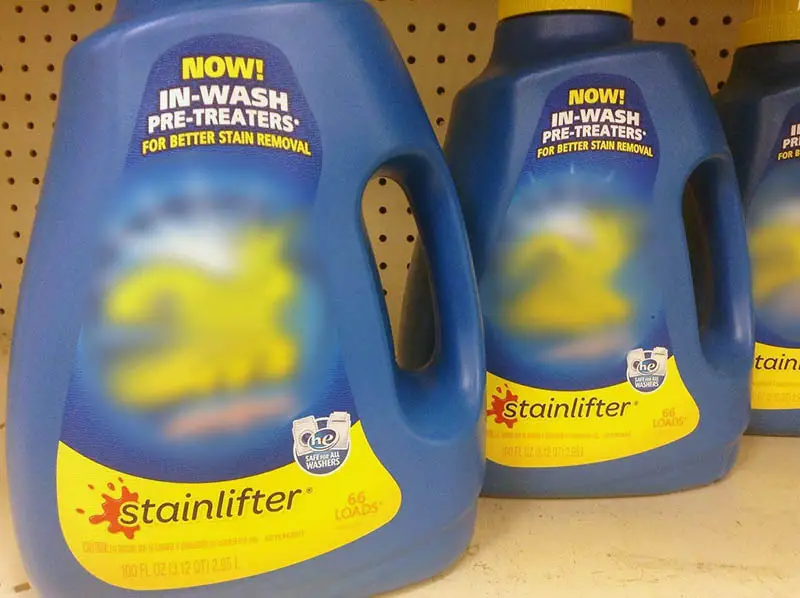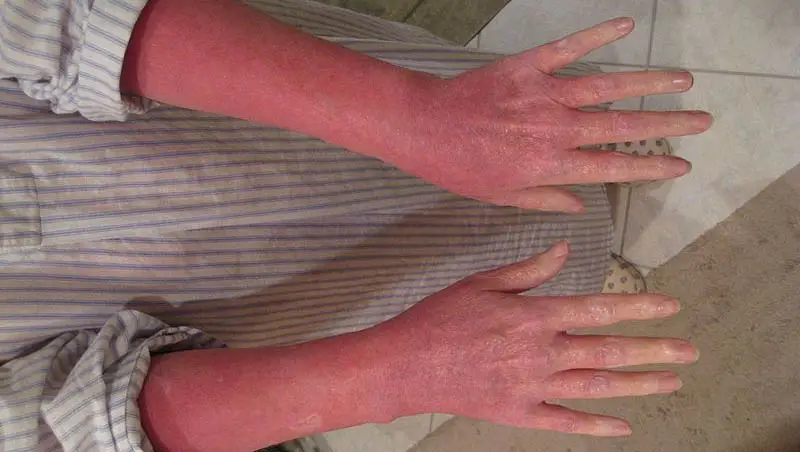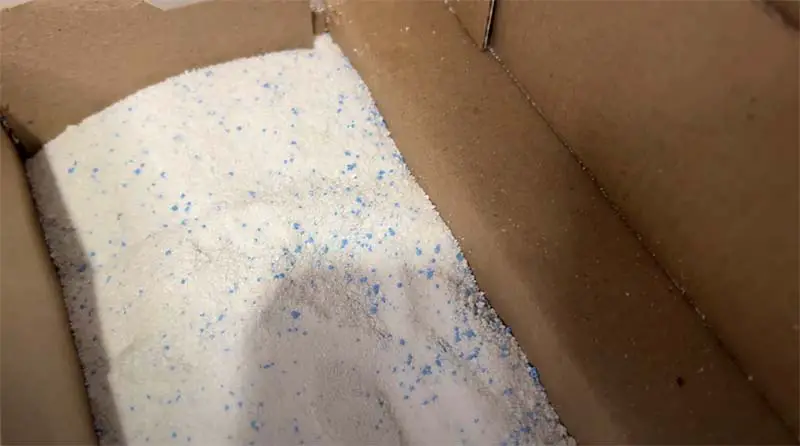Regular laundry detergents are a blend of chemicals that react differently, especially with sensitive skin. Therefore, getting the right laundry detergent for sensitive skin will protect you from irritation. Since laundry detergent is a common household cleaning product, it’s vital to understand how your skin can react when in contact.
Laundry detergent is bad for the skin as it causes an itchy rash in hidden places like the armpits and groin. Chemicals like fragrance in detergent can be bad for the skin in children and adults. Moreover, the allergic reaction to detergents can trigger a skin condition called contact dermatitis.
You have a right to buy whatever laundry detergent you like. However, that fragrance you love so much can be the reason for random itching and skin inflammation. Therefore, once you’re sure your laundry detergent is the culprit, stop using it and get a better option.
Sometimes allergic reactions might not manifest at once but can build with frequent exposures. Safer laundry detergent options are free of fragrances, dyes, and other risky additives to sensitive skin.

Is laundry detergent bad for your skin?
Your favorite laundry detergent might pose a strong fragrance to bother neighbors, but it can be harmful. However, if you suspect the detergent you love so much is irritating your skin, there is no second way about it but discontinuing its use.
How can you determine this? A sudden itchy red rush in your armpits or groin will appear after wearing freshly washed clothes. Here are a few quick remedies to help clear the rash.
- Use over-the-counter creams to soothe the affected area or
- Wash the irritated skin with lots of water, and gentle soap, pat it dry, apply petroleum jelly and let it heal.
- Repeat the process until your skin is back to normal, which might be between two to four weeks, depending on severity.

Note: Once you ascertain that your detergent is the cause of skin irritation, opt for hypoallergenic, fragrance-free products. Fragrances are the major cause of skin irritation, itching, and rashes.
Can laundry detergent burn skin?
The chemical concentration lurking in laundry pods can cause significant skin burns, especially in children and adults. Although it may not be serious, skin irritation can last up to four weeks, especially if the trigger substance is still in use.
Here is a list of symptoms to look out for if you suspect laundry detergent skin burns.
- A red itchy, mild or severe rash
- Oozing blisters
- Skin bumps or swelling
- Dry, broken, or scaly skin
- Tender skin to touch
- Burning sensation on the skin

Caregivers need to be cautious about the harmful outcome of laundry detergents, especially to children. If you notice spilled laundry detergent on the skin, wash it off with lots of water and apply petroleum jelly to prevent further damage.
Moreover, you need to keep laundry detergents away from children as they can easily ingest them.
Although a laundry detergent rash can manifest anywhere on the body, for some people, it’s in areas with folds and much sweating, like the armpit and groin.
The facial skin is sensitive, and a freshly washed pillowcase can irritate it, while irritation can be all over the entire body of a baby.
Harmful chemicals in laundry detergent
Regular laundry detergents consist of various chemicals with the potential of causing multiple issues like skin irritation and loss of breath. The allergy-triggering ingredients are known as allergens. Some of these allergens are surfactants that clean fabric by removing dirt, oils, or stubborn stains.
Although surfactants make cleaning products effective, some laundry detergents might not be good for people with sensitive skin. Mild allergies caused by laundry detergents build up after frequent exposures to allergens.
However, once signs of allergies manifest, keep off the offending substance, and you’ll be fine.
Now, can laundry detergent harm your skin? Yes, laundry detergent can damage your skin with frequent exposure to allergenic substances. Here is a list of the most common allergens in laundry detergents.
- Preservatives
- Enzymes
- Parabens
- Colors or dyes
- Moisturizers
- Fabric softeners
- Solvents
- Emulsifiers
What is the safest laundry detergent for your skin?

Are you wondering, can baby be allergic to detergent? Yes, a baby can be allergic to detergent because its skin is highly sensitive. The hidden chemicals in cleaning products pose a potential danger, but you can buy hypoallergenic detergents to keep them safe.
But, is tide bad for your skin? Tide is recognized as a safe and effective detergent and is ideal for people with allergies and babies. Tide detergent comes in liquid and pods.
Frequently Asked Questions (FAQs)
Can you wash your body with laundry detergent?
Yes, you can wash your body with a laundry detergent, but it’s not recommended. This is because laundry detergents contain powerful harsh chemicals meant to clean fabric, not human bodies. As a result, your skin will get breakouts from dryness, irritation, and redness.
What to do if you get laundry detergent on your skin?
If you get laundry detergent on your skin, wash it off immediately with lots of water. Pat dry, then apply petroleum jelly or a moisturizing lotion to soothe the skin.
Is powder or liquid detergent better for sensitive skin?

Liquid detergent is better for sensitive skin because it’s unlikely to leave residue on the fabric. Rinse your clothes twice after washing with powder detergent to rid them of detergent residue and avoid skin irritation or allergies.
Is it bad to get laundry detergent on your hands?
Don’t worry if you get laundry detergent on your hands for a short time. A brief exposure isn’t harmful, but you must wash it off immediately.
What happens if you get laundry detergent on your face?
The harsh chemicals in laundry detergents can irritate the skin and cause contact dermatitis, especially on your face. Although the condition isn’t life-threatening, it’s uncomfortable and can cause inflammation, especially on sensitive facial skin.
Conclusion
Is laundry detergent bad for skin? Yes, laundry detergent can cause skin irritation from components like fragrances, dyes, and surfactants. That’s why people with sensitive skin or conditions like eczema may experience sensitivity to regular detergents, but hypoallergenic options are safe.
When shopping, read the label to know about the laundry detergent ingredients to avoid buying a product that’s dangerous to you.
You can learn more can you can you mix vinegar and laundry detergent?
